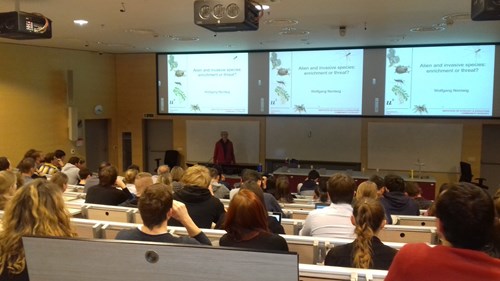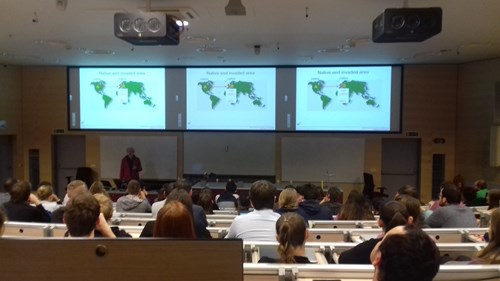Prof. Dr. Wolfgang Nentwig
Universty of Bern, Switzerland
- Ecology of the agricultural landscape (set aside, ecological compensation areas, renewable resource plants);
- Ecology of invasive species, biological control of pests and weeds (e.g. projects on slugs, Cirsium arvense, Heracleum mantegazzianum, Impatiens glandulifera), impact and risk assessment protocols, early warning system;
- Ecology and non-target-effects of transgenic plants (oilseed rape, corn, wheat);
- Ecology of spiders (biochemistry and ecology of spider venom, macroecology of spiders, European spider identification key, spider systematics, barcoding, World Spider Catalog).
- Virtual Institute of Spider Taxonomic Research.

